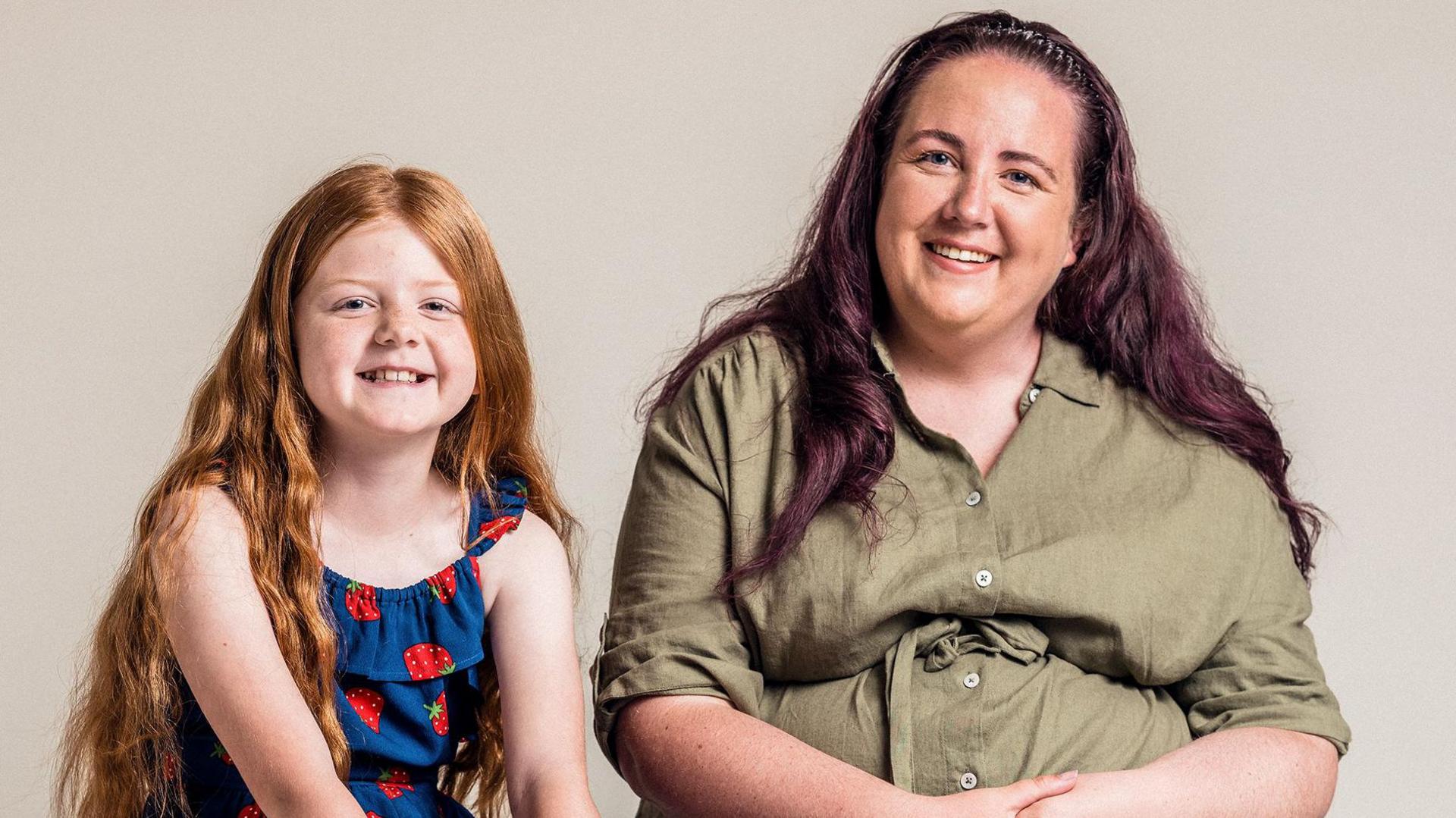Arena bomb survivors 'feel forgotten about'
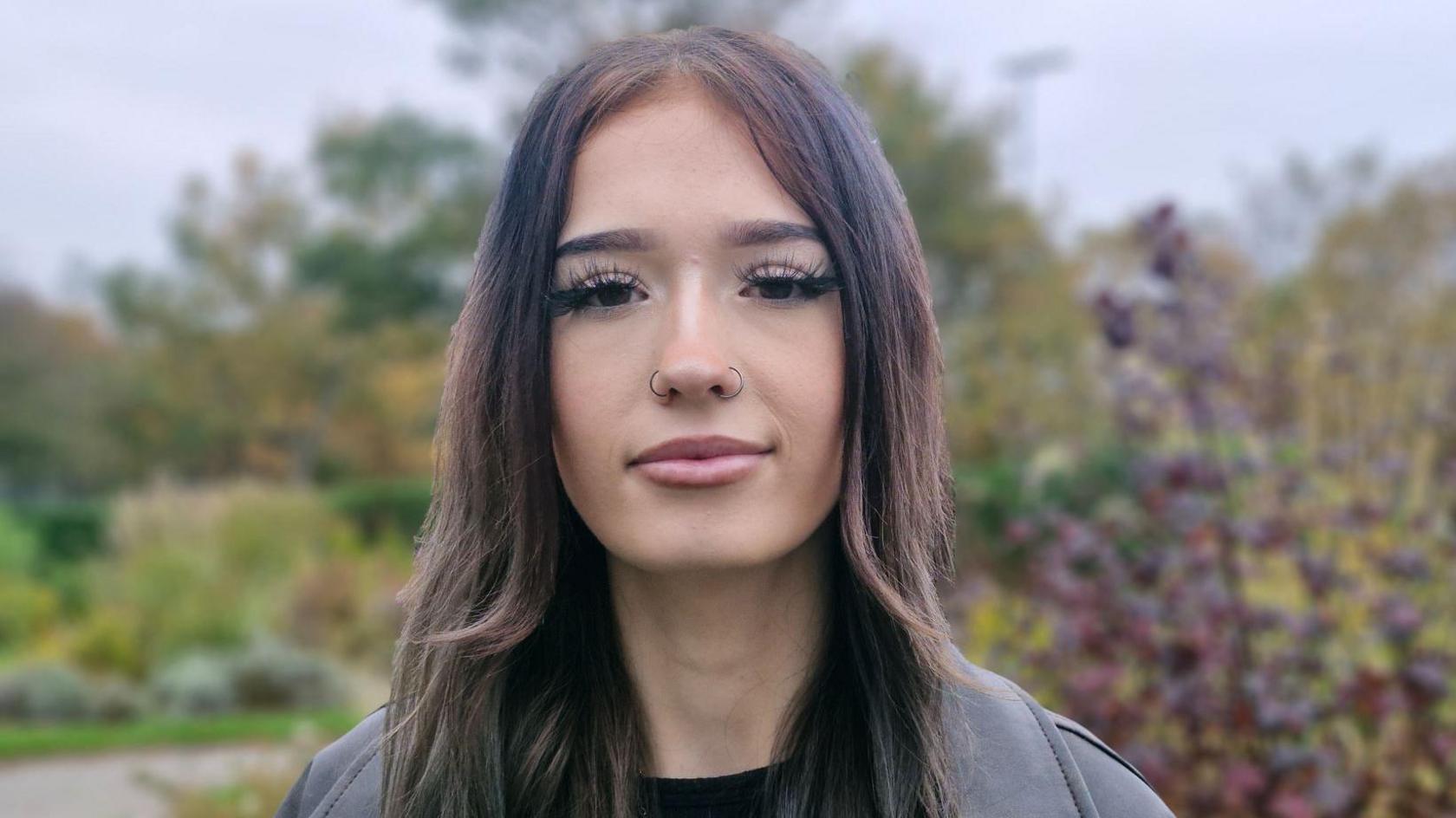
Kallie was 12 years old at the time of the Manchester Arena attack
- Published
When Salman Abedi detonated a homemade bomb at Manchester Arena in 2017, 22 people lost their lives and 116 people were physically injured.
Hundreds more suffered psychological damage because of what they saw and heard.
Eight years on, some of those people - including Kallie Fenton, 21 from Blackpool, said they felt they had been "forgotten about" and have called for more support as they navigate their adult years.
Kallie said the more she had learnt about the attack, which happened at the end of an Ariana Grande concert, "the more it's affected me and made me just kind of question everything around me", adding that she was tired of "living on the edge".
In the aftermath of the attack, Greater Manchester Resilience Hub was set up to offer young people help and support to come to terms with what happened.
But for some teenagers, it was too far to travel and they said when they tried to find help closer to home, they struggled to get support.
Pennine Care NHS Foundation Trust said the hub had helped thousands of people and was still open and still received referrals most weeks.
Kallie was 12 years old at the time of the attack, and had gone to the concert with her sister.
"It was our first concert on our own," she told BBC North West Tonight.
"So my mum was like, this is a big trusting event like I'm putting a lot of trust into you both".
Kallie, now 21, said her mum messaged her at 22:31 asking if it was finished "because she'd heard the bang and she thought it was fireworks".
That bang was the bomb going off.
Kallie and her sister were in Block 205, close to the mezzanine where Abedi detonated the bomb.
"As soon as we got outside, it was just smoke everywhere and like bodies on the floor and nails on the floor," she said.
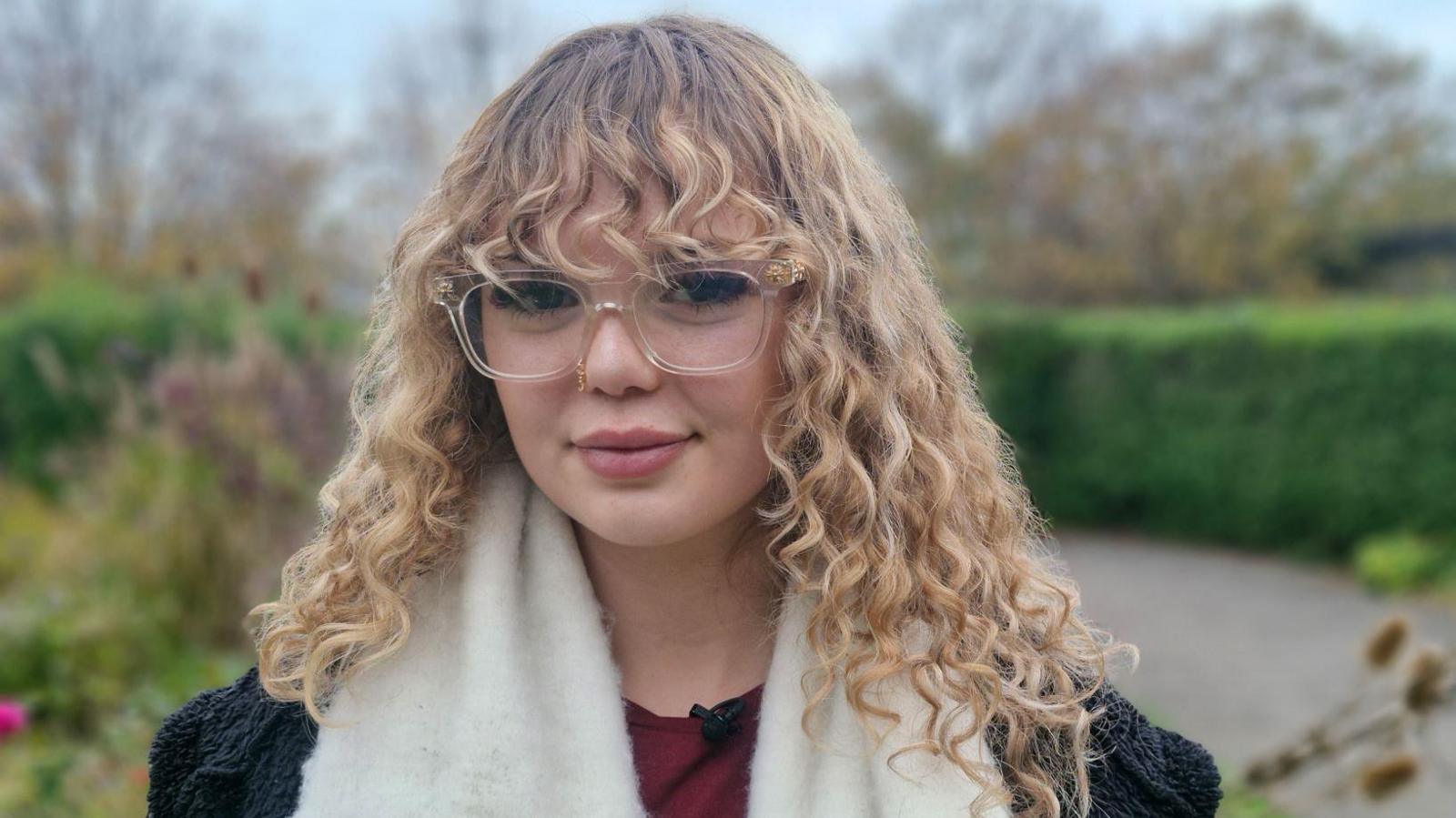
Abbey Aubert, who was 13 at the arena, says she carries what happened "on her shoulders every day"
Although physically unhurt, Kallie, who is now a school cleaner, said the impact on her mental health had increased as she got older.
"In daily life, I'm always looking around everywhere. I'm always just checking to see where the nearest exits are and where I can leave if I need to leave and it just affected how much I can trust everyone around me," she said.
"It's tiring, it's really tiring and I don't want to have to live constantly on edge. But I feel like it's something that it's gonna be carried through forever."
'Quite angry'
Kallie was in and out of therapy during her teenage years - therapy that she said was unfinished and ineffective.
"I did EMDR (Eye Movement Desensitization and Reprocessing) twice, and every time I did EMDR, it was never finished.... so we got half way through it and they'd dismiss me or discharge me from the services," she said.
Kallie sought help again last year and said she had been told "it's probably another year waiting list".
She said that made her feel "quite angry, to be honest... and frustrated because it feels like we've been forgotten about and we still need support".
Kallie is part of a group chat, originally set up for survivors to sort tickets for the One Love Manchester concert.
That is how she met Abbey Aubert, who was 13 when she witnessed the arena bombing, after she had been gifted the concert tickets as a birthday present.
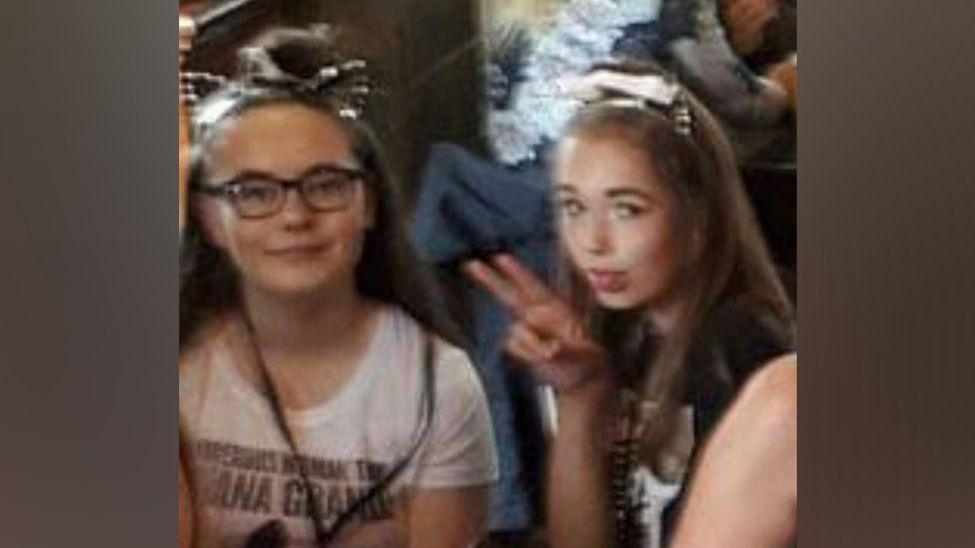
Abbey and Kallie became friends after the attack
Abbey, 21, from Manchester, said: "The One Love Group is definitely the biggest positive. Being able to make these lifelong friendships because, you know, we're really connecting over something that's so distressing."
She said the arena attack impacted "every decision that I make, every choice, every day".
"It's like almost in the back of your mind. It's like you are carrying it around on your shoulders every single day," she said.
"Even if it's not actively affecting your emotions in that moment, you've still got it with you, and you're still carrying it and it's still there."
Abbey said she had had a similarly "distressing" experience with counselling, and as she was just "getting comfortable to speak about my feelings" with a therapist she would be told "that's your last session... you're not entitled to any more".
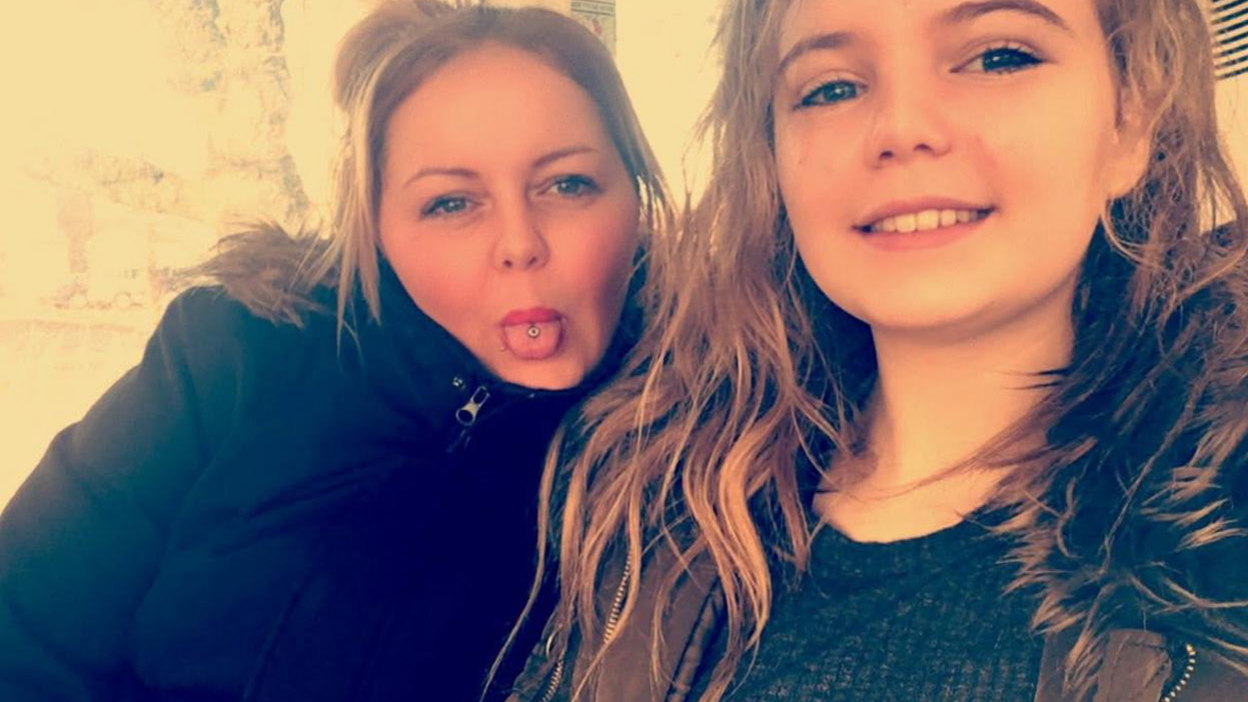
Abbey, pictured here with her mum the day before the Ariana Grande concert, after being gifted the tickets for her 13th birthday
Abbey, who is now studying for a degree in criminal and forensic psychology, said it "made no sense to me" and she felt "what was the point in the first place".
She said she had heard of EMDR and CBT (Cognitive Behavioural Therapy) but "the waiting lists are endless", adding: "It's just always been pushed under the rug."
Kaci Connor-Dugdale, from Blackpool, who was 13 when she went to the concert, agreed it was "hard to kind of trust people now, after everything that's happened".
"It affected me in school with like people making jokes and stuff, and then, in my adulthood, I'm still hearing it, and it's like noises like fireworks and stuff, I can't go with my friends really."
She is now 22 and studying a degree in business management and leadership.
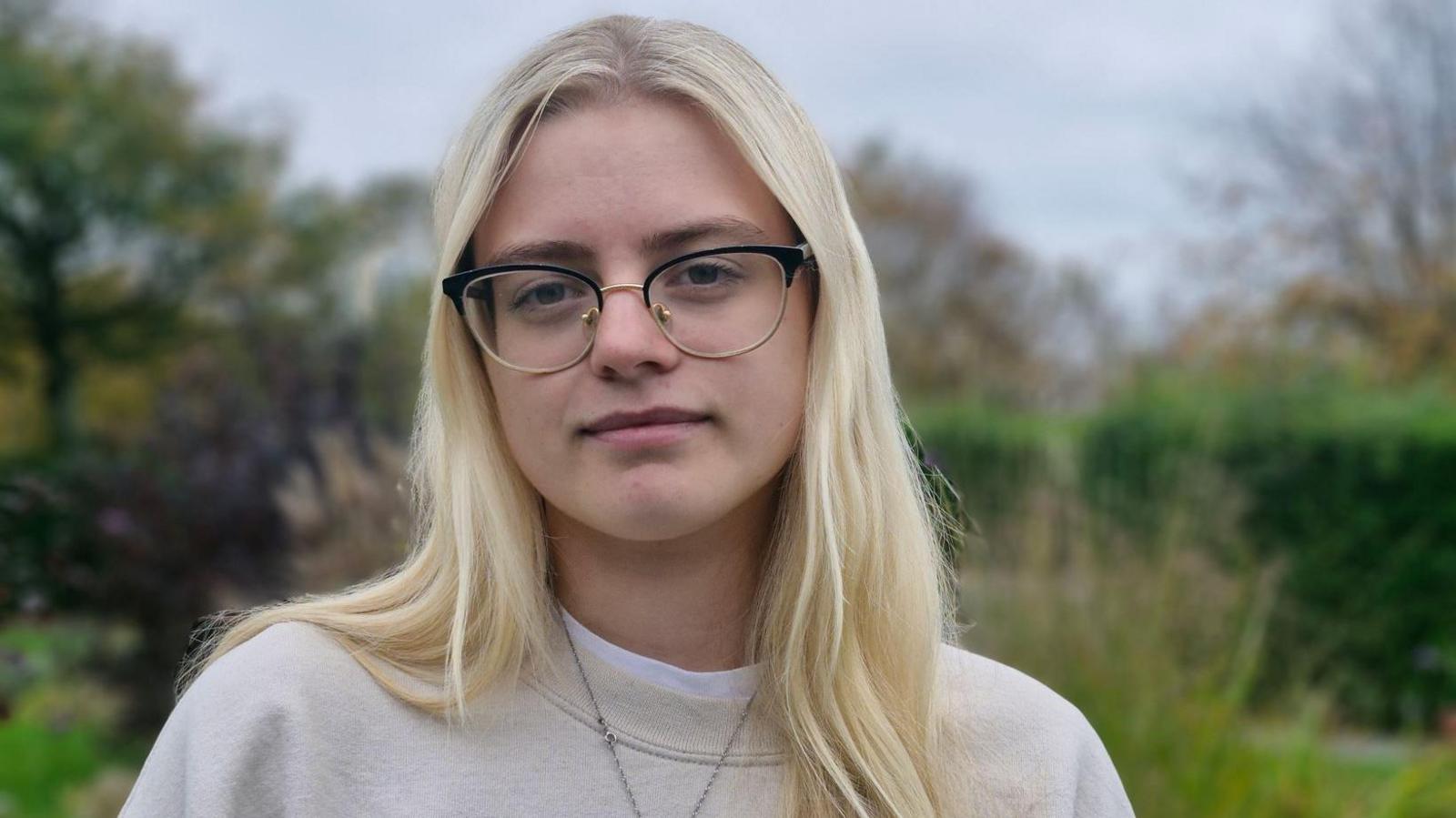
Kaci Connor-Dugdale, 22, from Blackpool, says she avoids fireworks displays because of the attack
Despite the years passing Kaci said: "The same feelings from when I was 13 is still the same feelings... and I don't think that will really change."
She said she "bottled up" her feelings for years and only reached out for help from the NHS when she was 20.
"They put me through just 12 weeks of sessions... but I don't think it really did anything, because it was just really like talking about how CBT therapy works instead of really understanding how I was feeling," she said.
The Home Office said it stood "shoulder to shoulder" with survivors like Kallie, Abbey and Kaci.
"We remain focused on providing the best possible support, which currently includes a 24/7 helpline, mental health assessments, referrals, and long-term peer support, a spokesman said.
A dedicated support hub is planned to be up and running by summer 2026," he added.
Abbey said she felt mental health services needed to be more specialised to be effective.
"Everyone on that night have had different experiences, so will be feeling different things and I think that there really needs to be more awareness and acknowledgment of that," she said.
Kallie said she believed life for survivors like her, Abbey and Kaci would be very different if they had been given consistent help and support since they were teenagers.
"I think a lot of us would be in a very different place if we received the support that we were promised," she said.
Pennine Care NHS Trust said more than 700 people were supported within the first few days of the arena attack and further psychological screening took place for people who were injured or bereaved or were witnesses experiencing psychological distress.
The trust said it had written to all concertgoers and urged them to seek help if needed.
So far the hub has supported more than 4,000 people, including 1,000 children, it added.
Get in touch
Tell us which stories we should cover in Greater Manchester
Listen to the best of BBC Radio Manchester on Sounds and follow BBC Manchester on Facebook, external, X, external, and Instagram, external. You can also send story ideas via Whatsapp to 0808 100 2230.
Related topics
- Published14 October
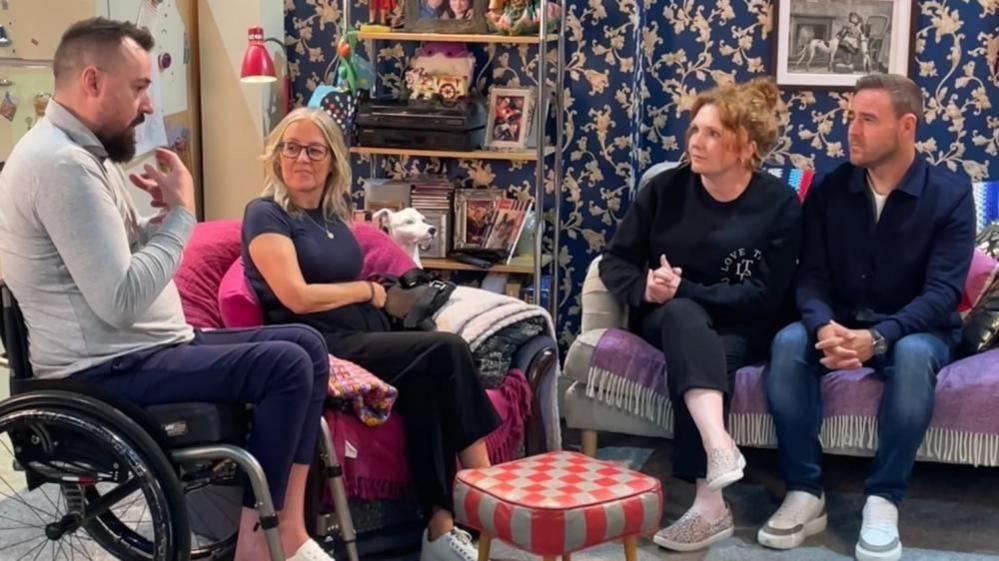
- Published1 September
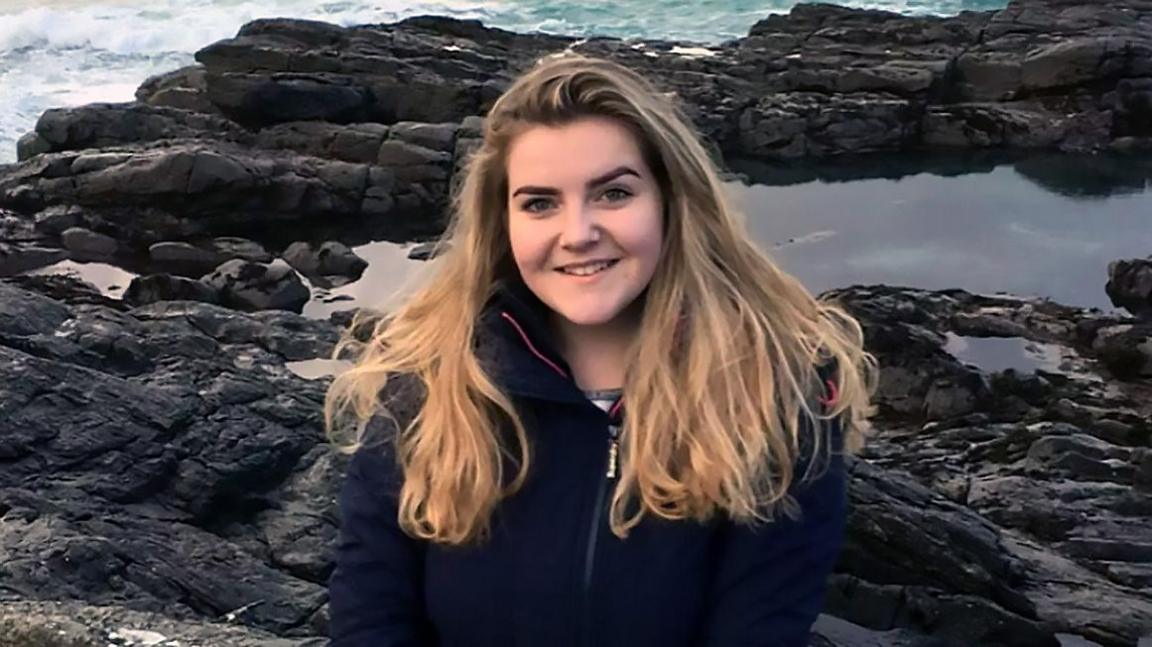
- Published6 June
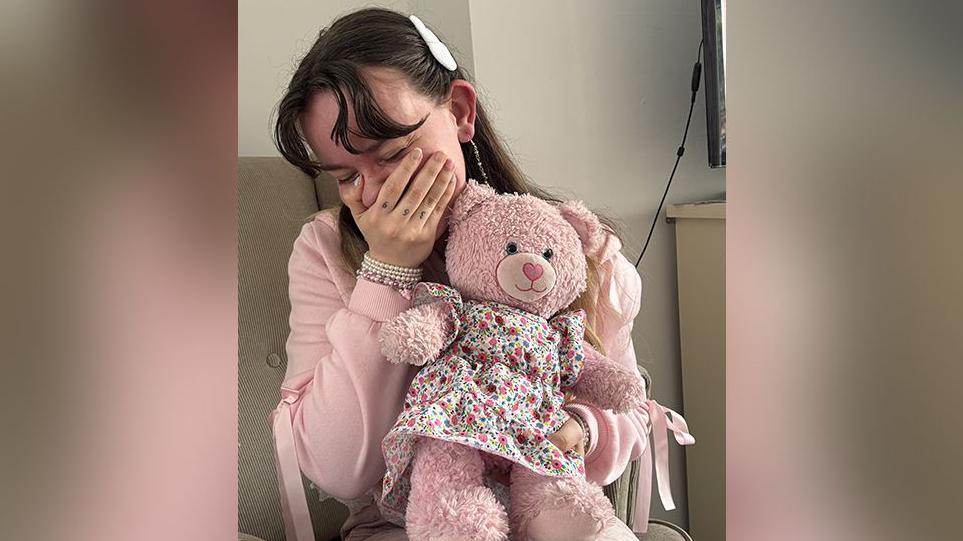
- Published22 May
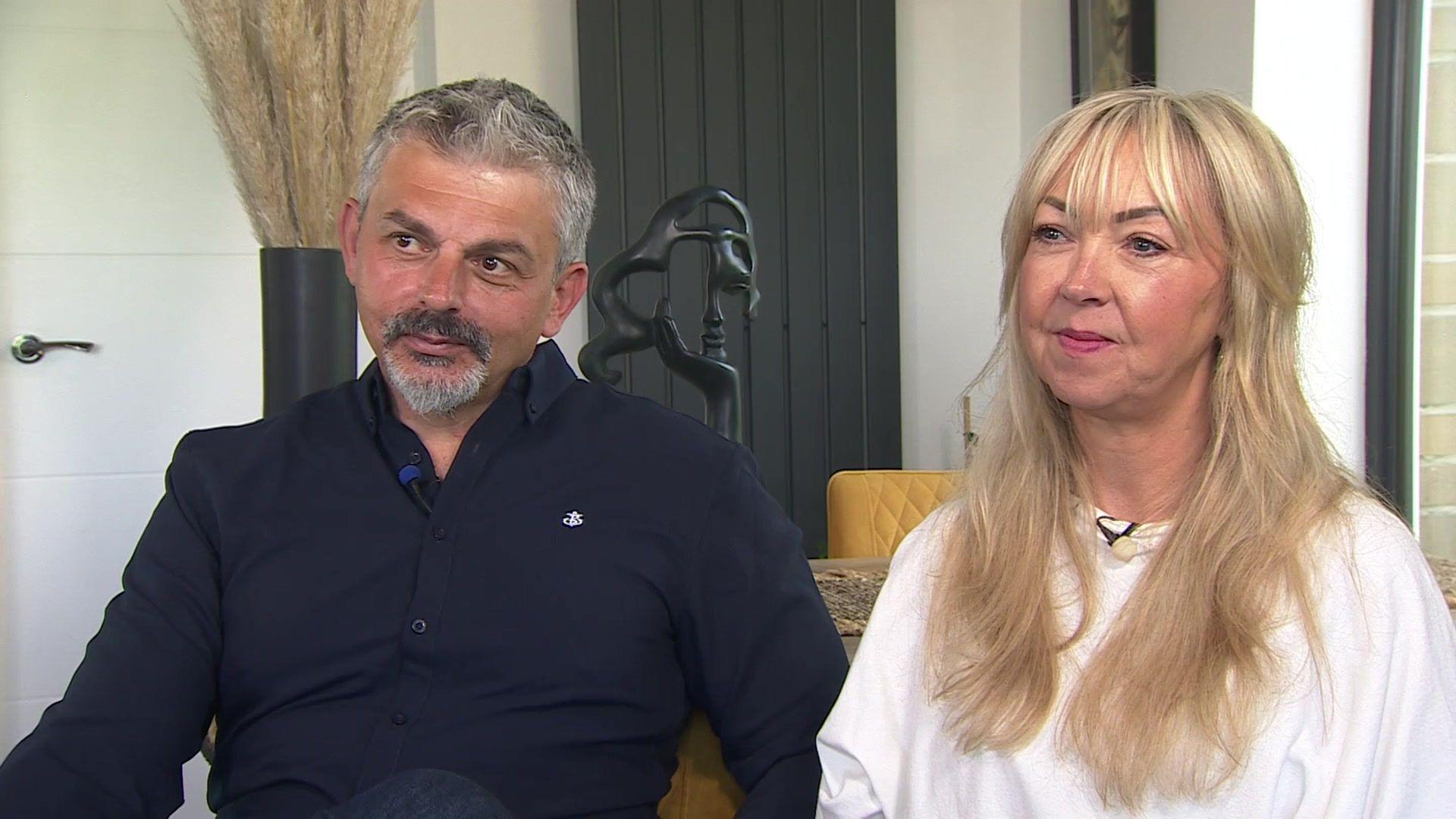
- Published27 April
